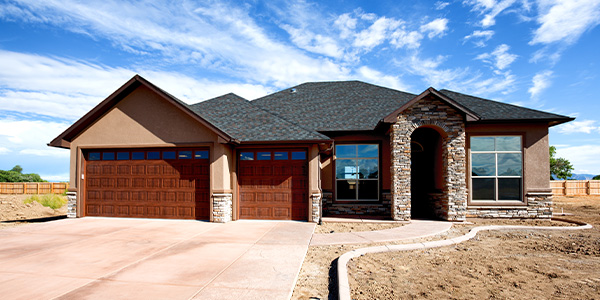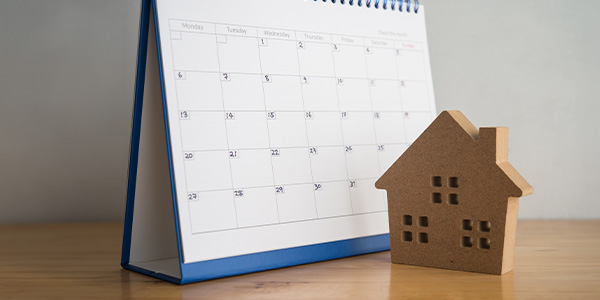Homebuyers
How to Financially Prepare for Buying a Home in 2025
April 1, 2025
April is Financial Literacy Month. That means it’s time to take stock of your money habits, learn new financial skills, and figure out your big-picture goals. For many people, one of those goals is buying a home.
But in today's market, being financially ready to buy isn't just about having a good credit score or a large chunk of savings. It’s about having a plan.
"The first financial step I recommend for anyone planning to buy a home in 2025 is to schedule a goals consultation," said Lance Scott, a loan officer with New American Funding in Covington, La. "This is where we take a deep dive into what the buyer truly wants—not just in a home, but in their financial future."
That kind of strategic planning is especially important now, as home prices continue to climb. The median sales price for an existing home in February rose 3.8% from February 2024 to $398,400, according to the National Association of Realtors data.
From determining how much home you can afford and exploring down payment assistance programs to getting preapproved for a mortgage and avoiding costly missteps, these tips will help you take control of your finances—and your future.
Assess your financial readiness

Before you start browsing listings or dreaming of a front porch swing, it's key to understand your current financial situation.
Your credit score, savings, and debt levels all factor into what kind of mortgage you can qualify for—and what type of home you can comfortably afford.
A strong credit score (generally 700 or above) can help you secure a lower interest rate, saving you thousands of dollars over the life of your loan.
If your score needs improvement, focus on paying down balances and making on-time payments to boost it over time.
Lenders will also look at your debt-to-income ratio, or DTI, to assess how much of your monthly income is already committed to things like car payments and credit card bills. Ideally, your DTI should fall below 36%.
It's also wise to start building up your savings. Besides a down payment, you'll need to cover closing costs, moving expenses, and ongoing maintenance once you're in the home. And that doesn’t even include new furniture.
Having an emergency fund in place can make all the difference.
Determine how much house you can afford

Once you have a handle on your financial picture, it's time to figure out what price range makes sense for your budget. This step involves more than just calculating a monthly mortgage payment. You'll need to factor in property taxes, homeowner’s insurance, and regular maintenance costs that come with owning a home.
While online calculators can give you a ballpark estimate, consider speaking with a mortgage professional to get a clearer view of what's realistic for your situation.
"A lot of online mortgage calculators are not entirely accurate because they often don't factor in key expenses like property taxes and homeowners' insurance, which vary significantly by location," said Scott. "Property tax rates differ from state to state, and even county to county, while insurance costs are influenced by local risks such as weather conditions and market trends."
It's easy to fall in love with a home that stretches your budget. However, sticking to a more affordable price range may be the right decision for you.
Explore down payment assistance and savings strategies
If saving up for a down payment feels like an uphill climb, you're not alone. The good news? There are many programs designed to help.
From government-backed options, like Federal Housing Administration (FHA) loans with lower down payment requirements, to state and local down payment assistance programs, there are various tools designed to help first-time buyers.
Buyers also may want to take a hard look at their finances to figure out where their money is going each month. Then they can create a budget. This can help them pinpoint what they can cut out or cut back on to save money. Cancelling things like unused gym memberships or consolidating streaming services can help.
They may also want to work with a financial advisor to set up short-term investment strategies, such as putting their money into a high-yield savings account. Depending on when they hope to purchase a home, they may want to consider longer-term strategies as well.
Some employers even offer homebuying assistance as part of their benefits package. It doesn’t hurt to ask.
The key is to start researching early. A loan officer or a financial advisor may be able to work with you to create a savings plan that works with your timeline.
"One of the smartest ways buyers can accelerate their savings for a down payment is by setting up a structured budget—whether monthly or even weekly," said Scott. "Additionally, many buyers aren't aware of the various down payment assistance (DPA) programs available to them."
Avoid common financial pitfalls

Even well-prepared buyers can fall into common traps. One of the biggest is overextending your budget. It may be tempting to push your financial limits for the perfect home, but doing so could leave you vulnerable if unexpected expenses come up.
It's also important to factor in the full cost of buying a home—including closing costs, appraisal fees, moving expenses, and the little things that add up after move-in.
Then give yourself a cushion for ongoing maintenance costs and the unexpected repairs. At some point, the air-conditioning system might fail, the dishwasher may need to be replaced, or you may have pricey plumbing or electrical problems.
Never skip the home inspection if you can help it. It might feel like an extra step, but it could save you from costly surprises down the road.
Homebuyers should also do their own research and run their numbers so they understand what their options may be.
"Misinformation can lead to costly misstep, such as choosing the wrong loan program, underestimating closing costs, or misjudging how much home they can truly afford," said Scott.
Lance Scott NMLS # 64612






 Smart Moves Start Here.
Smart Moves Start Here.